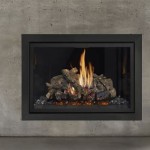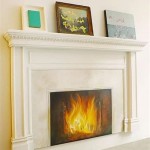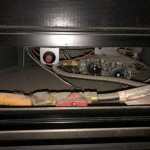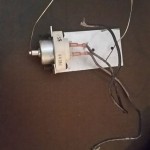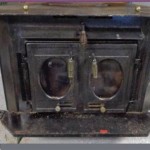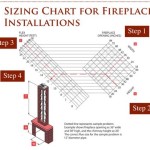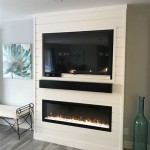Installing a Wood Burning Insert Into an Existing Fireplace
Installing a wood-burning insert into your existing fireplace is a great way to enhance your home's ambiance while also reducing heating costs. Inserts are efficient heat sources that can provide warmth and coziness to your living space. However, for a successful installation that ensures safety, efficiency, and optimal performance, it's crucial to follow the proper steps and adhere to safety guidelines.
Safety First
Before you begin any installation, ensure safety by shutting off the gas or electricity supply to your fireplace and clearing any combustible materials from the area. You may also need to remove the fireplace grate or andirons.
Chimney Inspection
Before installing a wood-burning insert, have your chimney inspected by a qualified professional to ensure it is structurally sound and free of any blockage or damage. The chimney should also meet the minimum required height above the roofline and have a properly sized flue. If necessary, cleaning or repairs should be performed before the insert is installed.
Proper Fit
Choosing the right size insert for your fireplace is essential. The insert should fit snugly within the firebox, with a minimum of 1 inch of clearance on all sides. If the insert is too small, it could cause overheating and damage to your fireplace. If it is too large, it may not provide adequate heat or may require excessive modification to your fireplace.
Installation Steps
The installation process typically involves the following steps:
- Assembling the insert according to the manufacturer's instructions.
- Placing the insert into the fireplace and leveling it.
- Connecting the insert to the chimney flue using a stovepipe or adapter.
- Sealing any gaps between the insert and the fireplace using high-temperature sealant.
- Installing the faceplate or trim around the insert to give it a finished look.
Additional Considerations
Air Supply: Ensure there is an adequate air supply to support combustion. This may require installing a fresh air intake vent or increasing the size of the existing vent.
Floor Protection: Place a non-combustible hearth pad or floor protector in front of the insert to protect your flooring from sparks or embers.
Operating Instructions: Familiarize yourself with the manufacturer's operating instructions for safe and efficient use of the insert, including proper fuel loading, lighting, and maintenance.
Conclusion
By following these guidelines and seeking assistance from a qualified professional if necessary, you can successfully install a wood-burning insert into your existing fireplace to enjoy the warmth, ambiance, and efficiency it brings. Remember to prioritize safety throughout the process and perform regular maintenance to ensure optimal performance and longevity of your insert.

How To Install A Wood Burning Fireplace Insert Fireplaces Direct Learning Center

Converting A Fireplace To Wood Burning Stove Chesneys

Chimney Installations
Wood Stoves And Fireplaces How To Install A Burning Fireplace Insert Hearth Com Forums Home

Fireplace Insert Installation Wood Burning Inserts

Converting A Fireplace To Wood Burning Stove Chesneys

Can You Install A Wood Stove In Fireplace Direct Stoves
How To Install An Electric Fireplace Insert

Benefits Of Face Lifting An Existing Fireplace With A Wood Fire Insert

How Fireplace Inserts Work We Love Fire

